- Home
- Sarah Woodbury
Castaways in Time (The After Cilmeri Series)
Castaways in Time (The After Cilmeri Series) Read online
A Novel from the After Cilmeri Series
Castaways in Time
by
Sarah Woodbury
SMASHWORDS EDITION
Copyright © 2013 by Sarah Woodbury
Cover image by Christine DeMaio-Rice at Flip City Books
http://flipcitybooks.com
Castaways in Time
With a scarlet fever epidemic raging throughout London, a rogue baron on the loose, a new baby keeping him up at night, and a kingdom to run, the last thing David has time for is a trip to the twenty-first century. But as he should know by now, time waits for no man, not even the King of England …
Castaways in Time is the seventh novel in the After Cilmeri series. Other books in the series include a novella, Winds of Time, and six novels: Daughter of Time, Footsteps in Time, Prince of Time, Crossroads in Time, Children of Time, and Exiles in Time.
www.sarahwoodbury.com
Comes the sun to the hill …
To Jolie
Books in the After Cilmeri Series:
Daughter of Time (prequel)
Footsteps in Time (Book One)
Winds of Time
Prince of Time (Book Two)
Crossroads in Time (Book Three)
Children of Time (Book Four)
Exiles in Time
Castaways in Time
The Gareth and Gwen Medieval Mysteries:
The Bard’s Daughter
The Good Knight
The Uninvited Guest
The Fourth Horseman
The Last Pendragon Saga:
The Last Pendragon
The Pendragon’s Quest
Other books by Sarah Woodbury:
Cold My Heart: A Novel of King Arthur
A Brief Guide to Welsh Pronunciation
c a hard ‘c’ sound (Cadfael)
ch a non-English sound as in Scottish ‘ch’ in ‘loch’ (Fychan)
dd a buzzy ‘th’ sound, as in ‘there’ (Ddu; Gwynedd)
f as in ‘of’ (Cadfael)
ff as in ‘off’ (Gruffydd)
g a hard ‘g’ sound, as in ‘gas’ (Goronwy)
l as in ‘lamp’ (Llywelyn)
ll a breathy ‘thl’ sound that does not occur in English (Llywelyn)
rh a breathy mix between ‘r’ and ‘rh’ that does not occur in English (Rhys)
th a softer sound than for ‘dd,’ as in ‘thick’ (Arthur)
u a short ‘ih’ sound (Gruffydd), or a long ‘ee’ sound (Cymru—pronounced ‘kumree’)
w as a consonant, it’s an English ‘w’ (Llywelyn); as a vowel, an ‘oo’ sound (Bwlch)
y the only letter in which Welsh is not phonetic. It can be an ‘ih’ sound, as in ‘Gwyn,’ is often an ‘uh’ sound (Cymru), and at the end of the word is an ‘ee’ sound (thus, both Cymru—the modern word for Wales—and Cymry—the word for Wales in the Dark Ages—are pronounced ‘kumree’)
Cast of Characters
The Welsh
David (Dafydd)—Prince of Wales
Lili—David’s wife, Ieuan’s sister
Callum—Time-traveler, Earl of Shrewsbury
Cassie—Time-traveler, married to Callum
Llywelyn—King of Wales, David’s father
Meg (Marged)—Queen of Wales, mother to David and Anna
Anna—Time-traveler, David’s half-sister
Math—Anna’s husband, nephew to Llywelyn
Ieuan—Welsh knight, one of David’s men
Bronwen—Time-traveler, married to Ieuan
Bevyn—Welsh knight
Nicholas de Carew—Norman/Welsh lord
The English
Edward I (deceased)—King of England
Humphrey de Bohun—Regent of England
William de Bohun—Humphrey’s son
Edmund Mortimer—Lord of the March
Gilbert de Clare—Lord of the March
Twenty-first Century English
Jane Cooke—Deputy Director of MI-5
Natasha Clarke—MI-5 agent
John Driscoll—MI-5 agent
Mark Jones—MI-5 agent
Thomas Smythe—Director Cooke’s deputy
Chapter One
Windsor Castle, England
September, 1289
Bronwen
“I know you’re busy, but we needed to see you before you left.” Bronwen stepped through the doorway into David’s office.
David glanced up from the last-minute papers he was signing, looking past her to Lili, who’d entered the room too. He stood to take the sleeping Arthur from Lili’s arms and kissed both his baby and his wife. Bronwen smiled, hardly able to believe that this was the same sixteen-year-old boy who’d dropped into her life four years ago, and whose man-at-arms had plucked her from her former life as a graduate student in archaeology and brought her to the Middle Ages with him.
Already dressed in her breeches in preparation for their upcoming journey, Cassie was the last to enter the room. She closed the door behind her and found a chair next to Bronwen, who set the wooden box she’d been carrying onto David’s desk.
“Well, isn’t this a rogues’ gallery? To what do I owe the pleasure?” David leaned back in his chair, rocking his son and smiling at the three women arrayed in front of him. “I’ve known for a while that you guys were up to something. Are you finally going to tell me what it is?” He spoke in modern American English because Lili’s grasp of that language was better than Cassie’s Welsh. While they’d started out trying to speak medieval ‘English’ when talking among themselves, Lili had complained that American crept in at every third word, and she’d had to learn it out of desperation.
Almost breathless with anticipation at what David’s response was going to be, Bronwen reached into the box and lifted out a tray.
David recoiled as she’d hoped he would. “What the—!” He cut himself off with a glance at his son in his arms.
Bronwen smiled all the more. Arthur was only three months old, and David was already watching his language.
“It’s moldy,” he said.
“It sure is,” Bronwen said.
David stared at her creation as she placed it on his desk, and then he looked into her face. “Is that a cantaloupe? Or should I say, was that a cantaloupe?”
“It was,” Bronwen said.
“Where’d you get a cantaloupe?”
“There are some benefits to being the Queen of England,” Lili said.
David shot his wife a bemused look. “I’m pretty sure cantaloupe aren’t grown in England.”
“A Genoese trader brought them to me a few weeks ago,” Lili said.
“This one was grown in Italy. She requisitioned ten of them,” Cassie said.
Bronwen poked at the fruit with a quill pen from David’s desk. “Our friend here is the one that produced what looked like the best mold.”
“Why on earth would you want to create moldy cantaloupe?” David said. “And why are you all grinning at me?”
“What we have here, my lord, is penicillin.” Bronwen used the honorific because it amused her to do so. “I hope.”
“Do we really?” David leaned in to study the mold.
Bronwen recognized the look on his face. It was one he wore when he was giving something his full attention.
“Now that is good news indeed,” David said. “How did you know to use cantaloupe?”
“Anna found a discussion of penicillin in those papers you printed out when we were at your aunt’s house four years ago,” Bronwen said. “Don’t you remember including it?”
“I remember printing off the information. I used up a whole ream of paper,” David said. “I couldn’t
tell you half of what I printed out, though, especially the pages that had to do with medicine. I had half a day to sift through the entire internet to collect everything I could think of that could be remotely important to us.”
“Okay,” Bronwen said. “To summarize: most penicillin molds have no antibiotic properties, and most cantaloupe molds don’t either, but in 1941, a woman found a moldy cantaloupe in a market in Ohio or Iowa or somewhere like that—blue-green and secreting a yellow goo—which the government turned into enough penicillin before D-Day to treat two million injured soldiers.”
“Sounds great,” David said. “How do we get from here to there?”
“We can’t,” Bronwen said, “but we can get further along than we are now, and that’s what we need Anna for.”
“Wait a minute.” David looked up from poking at the mold. “Anna’s here?”
“No, of course not,” Bronwen said. “A rider came in this morning, however, to say that she, Math, and the boys are on their way.”
“They’re a day or two out, no more,” Lili said.
David gave a tsk of disgust. “I’m going to miss them.”
“You’ll just have to finish up this business with Valence as quickly as you can,” Lili said.
Bronwen eyed her sister-in-law. Lili had remained relentlessly cheerful all this week about David’s upcoming journey, but the inherent danger in it had them all on edge. Over the last year, William de Valence had been the driving force behind a series of plots against Wales, against Scotland, and against David personally. Everyone knew that Valence couldn’t be allowed to continue his shenanigans, but the fact that he was currently residing in Ireland made him difficult to pin down. David had deprived him of his lands in England and Wales already; Valence was supposed to have removed himself from his castle at Wexford in Ireland too, but he continued to range freely throughout his Irish estates, snubbing David’s authority.
Thus, that very day, David was leaving with Callum and Cassie for Ireland. The pair had returned from Orkney without having uncovered any conclusive evidence that Margaret of Scotland had been murdered. That failure had made David realize that he had to deal with Valence before anyone else died from unspecified causes. To that end, he’d put together a coalition of barons, both Norman and native Irish. It would be David’s first visit since he became Lord of Ireland (and King of England), and he could not postpone it for even one day to see his sister. Gilbert de Clare had already departed to pave the way for David’s arrival and to begin preparations for the assault on Valence’s stronghold.
“I’m glad she’s coming,” David said. “I like knowing that all of you will be together for once.”
“Quite aside from wanting to see her, making penicillin is something I don’t have the knowledge to do on my own,” Bronwen said. “Not only does she have all the pages you printed out, but she’s been working with Aaron and the other physicians far more than I have. She told me I needed some cantaloupes, but not what I should do with them once they started growing mold.”
A knock came at the door, and Callum poked in his head. “We’re ready.”
David held up one finger. “I need a minute, Callum. Probably more than one.”
Callum surveyed the three women sitting in front of David and bestowed a grin on them before saying, “I’ll tell the men.” He held out his hand to Cassie, who rose to her feet and took it.
“I wanted to be here to see your face when you saw the mold, David, but I have a few last-minute things to see to,” Cassie said. “This is Bronwen and Lili’s party.”
David nodded and lifted a hand without actually looking at her, distracted again by the swath of blue-green mold on the cantaloupe. “Was it hard to grow?”
“It was easy,” Bronwen said. “I cut open the cantaloupe and voilá!”
“Can penicillin help us with the recent measles epidemic in London?” David adjusted Arthur in his arms. The baby yawned, and David jiggled him a few times to settle him back down to sleep.
Bronwen shook her head regretfully. “Measles is caused by a virus. Some of the policies you instituted have helped control its spread, but only a vaccine is going to seriously curb it. Scarlet fever, on the other hand, is caused by bacteria. This should work on it.”
“Thank God,” David said. “Tangible results are what we need.”
When David had taken the throne of England, it was as if a bomb had gone off in the English court. He was from the outside and hadn’t grown up at court with its traditions and expectations, and thus, he didn’t take anything anyone said at face value. He was completely willing to shake up the status quo if it meant getting done what he wanted done. Ironically, that made him similar to his predecessor, King Edward, and they had more in common than David might want to admit. Like Edward, he had no patience for blowhards or sycophants and wasn’t afraid of making unpopular decisions. But unlike Edward, he was careful to wear a velvet glove over his iron fist, which was perhaps why Valence consistently underestimated him and believed he could defy David with impunity.
Still, in the nine months since his coronation, David had ruffled more than a few feathers. If he could provide real treatment for a disease like scarlet fever, it could go a long way towards getting some of the less enthusiastic barons on board with his less popular policies—among them, issues of education, land reform, taxation, and health care.
Take disease, for example. David and his medical consultants (Aaron, his fellow Jewish physicians, Anna, and Bronwen) had come up with a strategy for impeding the spread of disease, with an eye to the Black Plague, which they could expect to arrive in another sixty years. But change was hard for anyone to accept, much less a medieval sailor who’d been taught to view disease as caused by the wrath of God. Or a churchman who believed the same. More than one priest had condemned David from the pulpit for what he was trying to do. Though David had been reluctant to call upon outside help to deal with issues of discipline, he’d asked the Archbishop of Canterbury twice to talk sense into one of his underlings, or if he couldn’t, to banish him to a remote monastery.
David had hired cadres of customs officers to manage the quarantining of ships. Before any ship docked on England’s shores, the officers identified sick travelers, isolated them, and arranged for treatment. He’d instituted refuse collection throughout London, much to the groans of the populace at first, though he wasn’t hearing anything like the complaints he used to get. People were even beginning to admit that it was nice being able to walk down the street without fear of a bed pan being dumped on their heads.
“When Anna gets here, I’ll have a better idea of what the timeline might be for getting this stuff to work. We’ll have to test it,” Bronwen said, already thinking about test subjects and control groups.
“Do you know how hard it is to get scholars to switch their focus from alchemy to the scientific method? To grasp the concepts behind germ theory?” David gestured towards the door, but Bronwen knew he meant the world at large. “I can barely get those yahoos to believe CPR could possibly work, much less that women should be educated equally with men.”
“Aaron understands. It’s been the basis of the academy he and Anna have begun in Llangollen,” Lili said.
“And not a moment too soon.” David tapped on the desk with his fingers. “That said, when Anna gets here and you start experimenting with this, we need to put those twenty scholars from Oxford and Cambridge to work. I’m not going to dance around either their egos or their sensibilities any longer. Tell them the invitation is from me.” He gave a wolfish grin. “Play off the two universities against each other if you have to.”
Lili gestured to the cantaloupe. “At least this is a natural result of exposing fruit to the air. Many of them may have seen mold like this before on apples, which is a source of penicillin too, just not as good.”
“It would be best to avoid all accusations of witchcraft,” Bronwen said.
“I agree.” But then David’s brow furrowed. “You know as well
as I do that these things go better when you guys work behind the scenes. The midwifery classes are one thing, but when those twenty men sit in that room and are expected to listen to any of you talk, their ears will close. It’s inevitable. I’m not saying you shouldn’t be there; I’m just saying that we have to think strategically about how to make them listen to women.”
“Good thing Cassie already left, or she’d box your ears just for suggesting that any of us step behind a curtain,” Bronwen said. “We can’t do that, if only because nobody else understands what we’re doing as well as Anna, Lili, or I.”
“You know I don’t like to suggest it,” David said.
“We’re not going to take a back seat in the experimenting either, if that’s what you were going to say next,” Bronwen said.
“I wasn’t,” David said, “but you will make waves if you don’t.”
“You mean we’ll ruffle some feathers when they find out that not only do they have to listen to a woman—three women, in fact—but we’re in charge,” Bronwen said.
“You said it, not me,” David said.
“My only response to that is, it’s about time,” Bronwen said.
“I know it is,” David said, “but—”
Bronwen cut him off. “I’m not implying that it’s your fault that things haven’t improved faster for women.”
“It is his fault, just a little bit,” Lili said.
“He didn’t make the rules,” Bronwen said.
David bowed his head. “Thank you for defending me, but I know that I have failed you to a certain extent in this. I haven’t pushed like I could have.”
“I know why you haven’t,” Bronwen said.
“It isn’t that I don’t think women’s rights are important—”

 The Good Knight
The Good Knight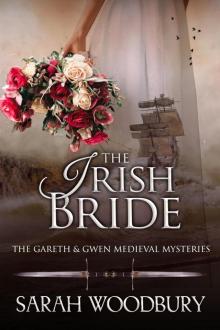 The Irish Bride
The Irish Bride Refuge in Time
Refuge in Time Masters of Time
Masters of Time Prince of Time (Book Two in the After Cilmeri series)
Prince of Time (Book Two in the After Cilmeri series)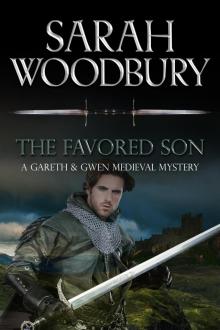 The Favored Son
The Favored Son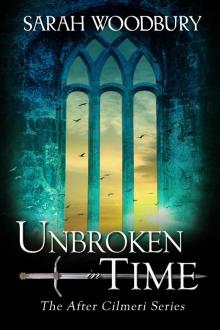 Unbroken in Time
Unbroken in Time![[The Lion of Wales 01.0] Cold My Heart Read online](http://i1.bookreadfree.com/i/03/22/the_lion_of_wales_01_0_cold_my_heart_preview.jpg) [The Lion of Wales 01.0] Cold My Heart
[The Lion of Wales 01.0] Cold My Heart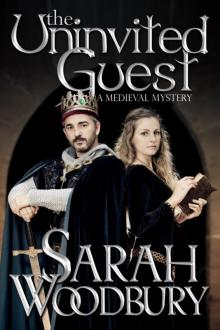 The Uninvited Guest
The Uninvited Guest The Pendragon's Blade (The Last Pendragon Saga Book 2)
The Pendragon's Blade (The Last Pendragon Saga Book 2)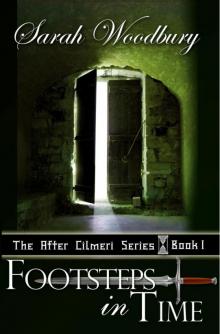 Footsteps in Time
Footsteps in Time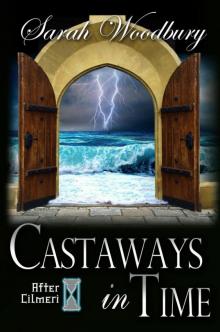 Castaways in Time (The After Cilmeri Series)
Castaways in Time (The After Cilmeri Series) Winds of Time
Winds of Time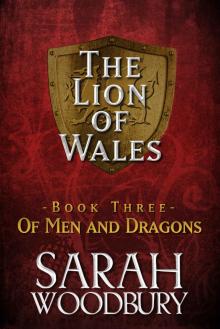 Of Men and Dragons (The Lion of Wales Book 3)
Of Men and Dragons (The Lion of Wales Book 3) Champions of Time
Champions of Time The Pendragon's Challenge (The Last Pendragon Saga Book 7)
The Pendragon's Challenge (The Last Pendragon Saga Book 7) Rise of the Pendragon (The Last Pendragon Saga Book 6)
Rise of the Pendragon (The Last Pendragon Saga Book 6) The Worthy Soldier
The Worthy Soldier The Last Pendragon (The Last Pendragon Saga Book 1)
The Last Pendragon (The Last Pendragon Saga Book 1)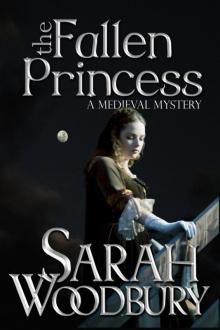 The Fallen Princess
The Fallen Princess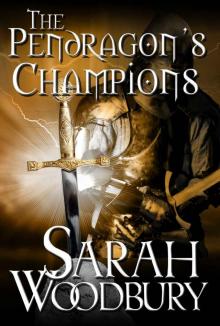 The Pendragon's Champions (The Last Pendragon Saga Book 5)
The Pendragon's Champions (The Last Pendragon Saga Book 5)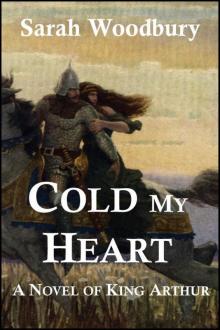 Cold My Heart: A Novel of King Arthur
Cold My Heart: A Novel of King Arthur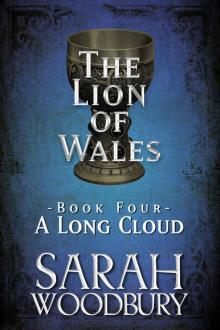 A Long Cloud (The Lion of Wales Book 4)
A Long Cloud (The Lion of Wales Book 4) Frost Against the Hilt (The Lion of Wales Book 5)
Frost Against the Hilt (The Lion of Wales Book 5) Daughter of Time: A Time Travel Romance
Daughter of Time: A Time Travel Romance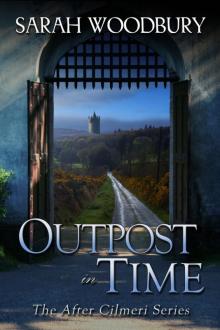 Outpost in Time
Outpost in Time Shades of Time kobo
Shades of Time kobo The Pendragon's Quest (The Last Pendragon Saga Book 4)
The Pendragon's Quest (The Last Pendragon Saga Book 4) The Unexpected Ally
The Unexpected Ally Crossroads in Time (The After Cilmeri Series)
Crossroads in Time (The After Cilmeri Series)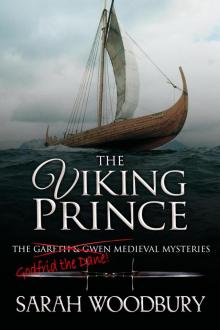 The Viking Prince
The Viking Prince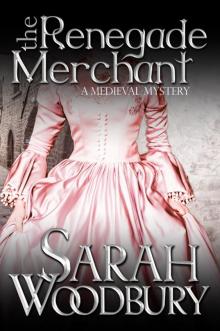 The Renegade Merchant
The Renegade Merchant Warden of Time (The After Cilmeri Series Book 8)
Warden of Time (The After Cilmeri Series Book 8) Ashes of Time (The After Cilmeri Series)
Ashes of Time (The After Cilmeri Series) Exiles in Time (The After Cilmeri Series)
Exiles in Time (The After Cilmeri Series)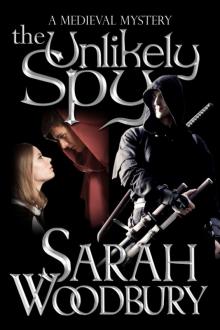 The Unlikely Spy
The Unlikely Spy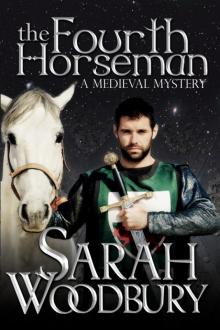 The Fourth Horseman
The Fourth Horseman The Oaken Door (The Lion of Wales Book 2)
The Oaken Door (The Lion of Wales Book 2) Song of the Pendragon (The Last Pendragon Saga Book 3)
Song of the Pendragon (The Last Pendragon Saga Book 3) Champions of Time (The After Cilmeri Series, #13)
Champions of Time (The After Cilmeri Series, #13) Guardians of Time
Guardians of Time The Bard's Daughter (A Gareth and Gwen Medieval Mystery)
The Bard's Daughter (A Gareth and Gwen Medieval Mystery)